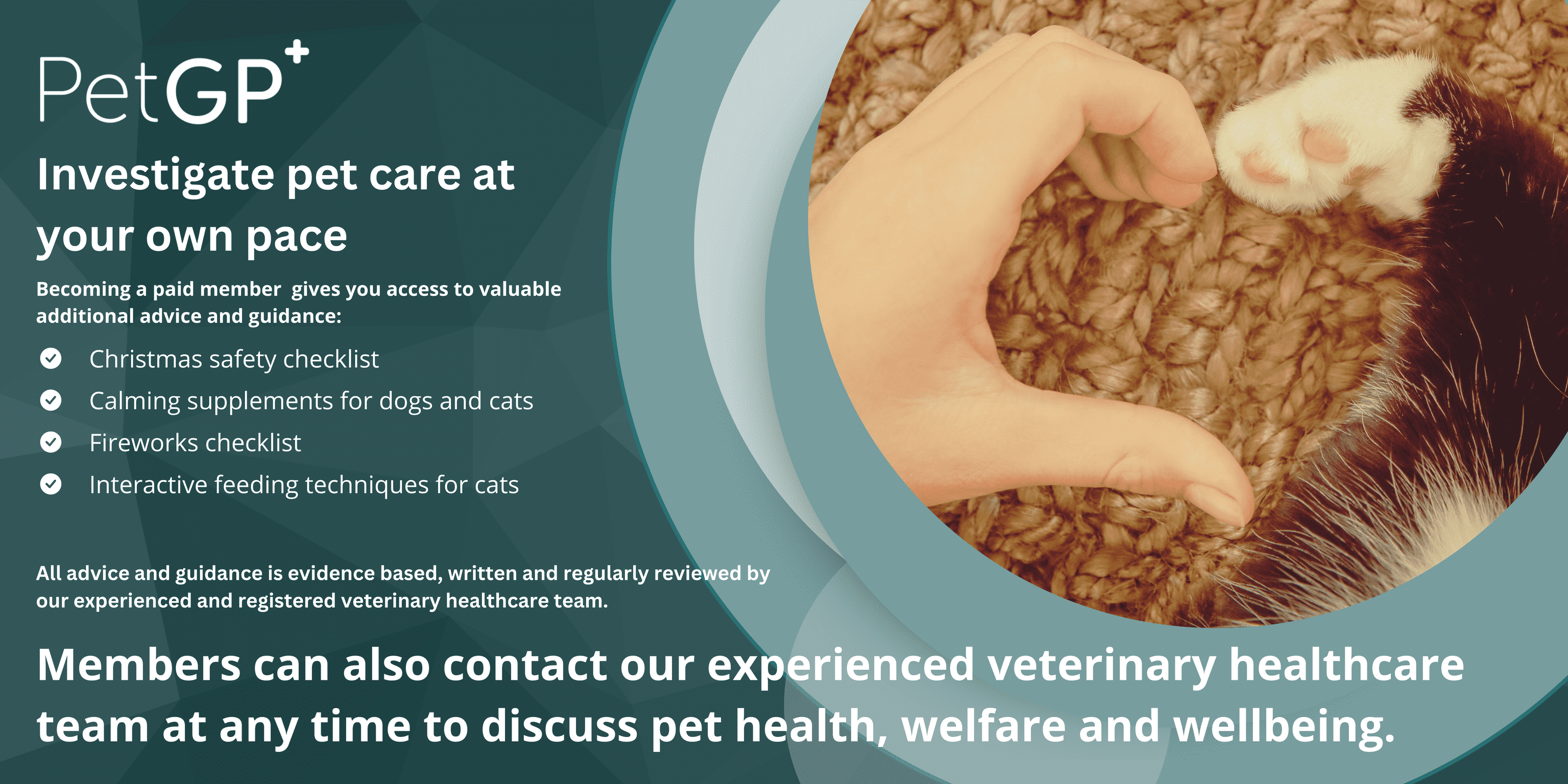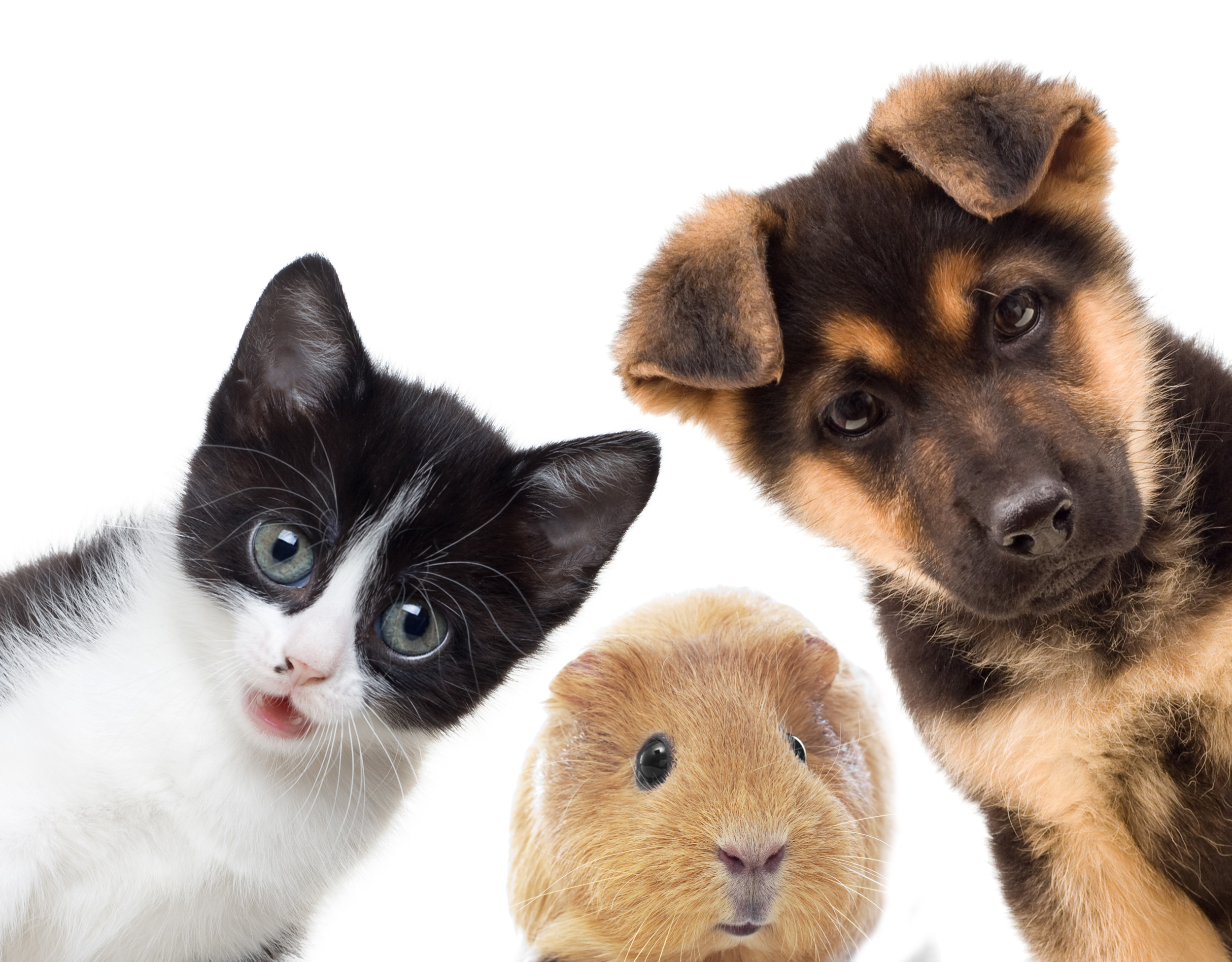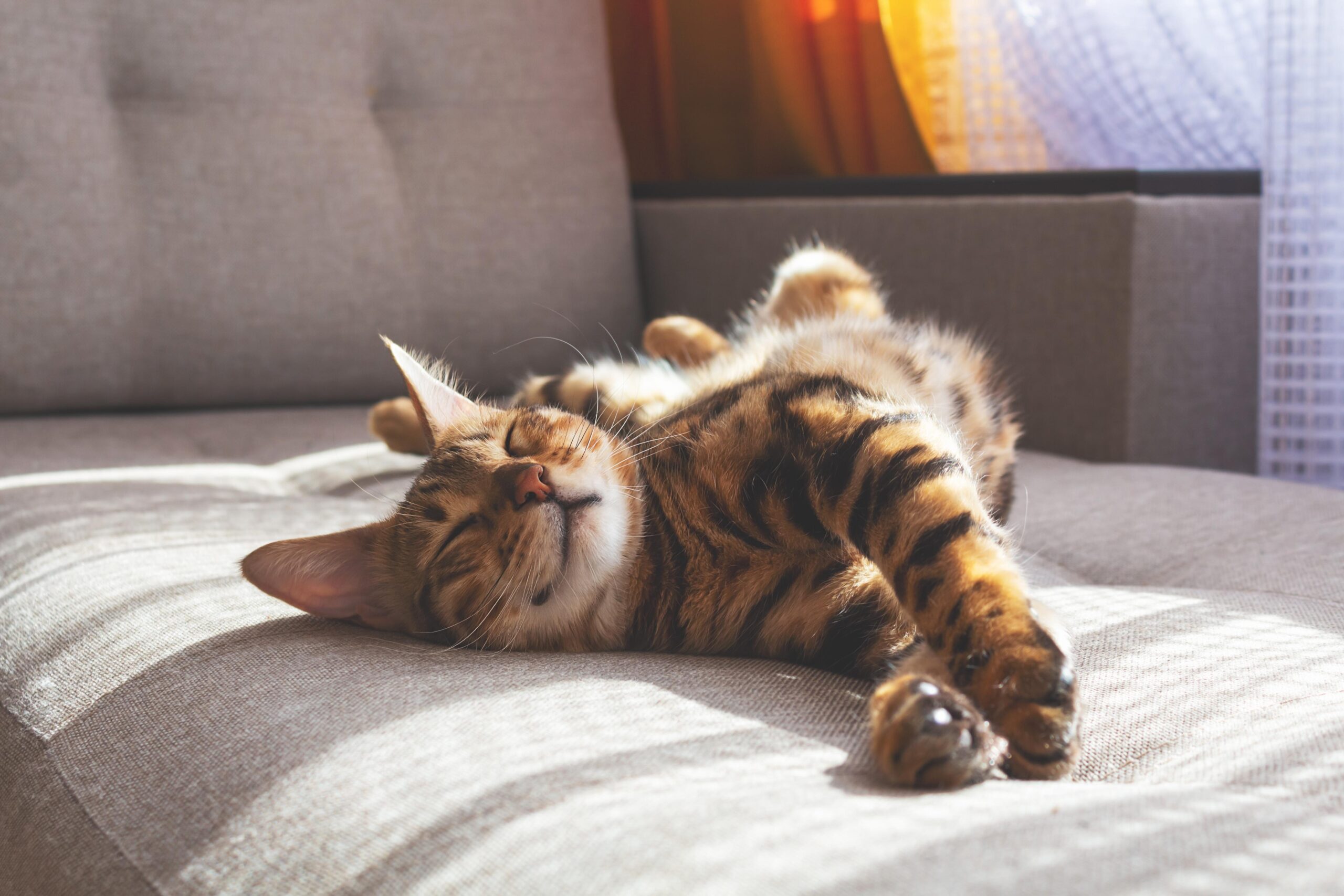How do I support my cat’s mental health?
Mental Health is a growing topic in human medicine; with lots of information and support available regarding mental health problems. There are ways in which we can support our mental health on a daily basis. Animals can also suffer with mental health problems. They can be much harder to diagnose. There are lots of ways in which we can help our cats mental health. We all want to keep our cats as happy and as healthy as possible. Caring for our cat’s mental health should be as important as looking after their physical wellbeing.
There are many factors that can play into our cat’s mental health. All cats have different personalities and some will be more at risk of developing mental health issues. As with all health problems, prevention is far better than a cure. Wherever possible, we want to create a daily environment for our cat that helps to keep them happy.
Suitable Environment
It is important that our cats are housed in a suitable environment. Most cats will spend the majority of their time in the home , either inside or in the immediate vicinity outdoors. Where should my cat live? is an important question. To optimise mental health, we should consider 5 aspects of our cat’s environment.
Location
- Provide a safe place – this should be a private and secure area, perhaps in a raised location. It should give a sense of enclosure, isolation or seclusion, and be somewhere that they can retreat to and feel protected.
Resources
- Provide multiple and separated key resources – these include feeding, drinking, toileting, claw scratching, play and resting/sleeping areas. These resources should be available in multiple locations, either to provide separate access in multi-cat households or several choices for individual cats. Each key resource should be placed in its own location, separate from other resources
Environmental Enrichment
- Provide opportunity for play and predatory behaviour - This might be in the form of toys, play with other cats or owners, or puzzle feeders
- Provide fusses and attention - Cats benefit from regular, friendly and predictable social interaction with their owners. This should be led by your cat at all times, and different cats will have different levels of tolerance.
- Provide an environment that respects the importance of the cat’s sense of smell. This is something that is often overlooked, but cats use their sense of smell constantly and it can have a great impact on their sense of security and comfort. Try to avoid using products or substances (cleaners, detergents, diffusers, scented cat litter, etc) in areas that your cat spends a lot of time in as it can cause distress and confusion.
Suitable Diet
It is important that we feed our cats a complete and balanced diet to ensure they grow and stay healthy. There are many diets out there. What food should my cat eat? is a very important question to keep them healthy.
There has been some research into specific diets that can help to support our cats mental health, and even into different diets or supplements that can be used to treat certain mental health conditions. If your cat struggles with anxiety or problem behaviours this may be something to discuss with your vet or with our team of nurses.
Ability to express normal behaviours
It is important that our cats are able to exhibit their full range of normal behaviours. This allows them to express their natural instincts and can help to eliminate boredom and frustration.
If cats are consistently prevented from expressing their normal behaviours, we can see a decline in their mental health. They may become frustrated and destructive, or they may start to develop abnormal, repetitive behaviours, known as stereotypies.
What is normal behaviour? This is important to understand so that you can promote this to maintain mental health.
Interaction with other cats
Feral cats are usually solitary hunters. Cats in domestic settings will usually tolerate living alone or in groups, provided there are sufficient resources (e.g. food bowls, litter trays, beds, etc).
Unfortunately however, many cats do not get along well in multi-cat households if their environmental needs are not being met. This often goes unnoticed unless they fight, develop behaviour problems or develop stress-related illnesses. Cat’s may only show subtle sigs that they do not get along, and these can be easy to miss. We often assume that cats like each other if they sleep or eat together. However if there are only beds or food in a single location than they may not be doing this by choice. Providing multiple environmental resources in different locations (food, water, toileting areas, sleep areas and elevated areas) allows cats easy access and gives them a sense of control. Individual cats can avoid seeing other cats, minimizing competition for resources, bullying and stress.
Staying healthy and free from disease
It is important not to overlook the relationship between physical and mental health. Just as in humans, a cat’s mental health is likely to deteriorate if they are unwell or in pain. Often changes in a cat’s behaviour or mental state can be an important sign that your cat is in pain. Vets often use behavioural signs to assist in their diagnosis of various health problems. There are many ways that we can help to keep our cats healthy and these are covered here.
Stress and Anxiety
Mental health problems, for example, stress and anxiety, can often cause physical disease. It has been shown in many species that prolonged stress can increase wound healing time, and also cause immunosuppression. This is likely to be the case in cats as well.
Stress has also been implicated as a cause for some cases of Cystitis in cats.
If your cat is unwell or develops abnormal behaviours, then it is important to contact a veterinary professional. They will always complete a full examination of your animal, and will take your cat’s behaviour and mental health into consideration as well.
Unfortunately in all cats’ lives, there are likely to be events that can cause a decrease in their mental health. Many of these are unavoidable, but there are ways to help.
Change
Whether you’re moving house, changing jobs, welcoming a new baby or new pet to the family or making any other changes to your cat’s life, many cats can struggle to adjust. It’s important to try and keep as many things constant in your cat’s life as possible during these times. This might mean setting up a familiar bed with their own blankets and toys in a new house, or making sure to take time for some one-on-one attention and games if there is a new arrival. For more tips and advice, follow these links or talk to your veterinary team
Stressful situations
Throughout the year there are many celebrations or events that can prove stressful for your cat. Fireworks and thunderstorms can be particularly worrying for your cat, but there are ways to help or even prevent these phobias.
Some cats can find Christmas and Halloween stressful; nervous animals might be frightened of the decorations or increase in visitors, and even confident cats can find the festivities over-stimulating.
Visits to the vet can also negatively impact your cats mental health. Whilst the vets and nurses will do everything they can to make each visit as calm and stress free as possible. There are additional ways you can help prepare your cat at home.
Aging
Just like in humans, as our cats get older, they might start to struggle with arthritis, deafness, blindness, or even changes to their mental capacity. Some cats may cope ok with these changes, especially if they are gradual, but others may become frustrated or unhappy. If your cat is approaching old age or is suffering from any of these issues, there are ways to help. Follow the specific links to find out more, or discuss with your veterinary team
Despite our best efforts, some cats will unfortunately develop mental health problems during their lives. We will touch on a few of the common problems below and signs to look out for. If your cat starts to display any of these behaviours, make sure to contact your vet. Many of the symptoms can overlap with those of several physical diseases, so it is important to rule these out before treating as a mental health condition.
Anxiety
Cats may show signs of anxiety relating to certain stressful situations (e.g. fireworks, thunderstorms, etc), or there may be an underlying cause of chronic stress which has led to their anxiety (e.g. a multi-cat household, or another cat in the neighbourhood that they don’t get on with).
Symptoms of anxiety include;
- Freezing, with pupils dilated, ears pinned back and tail tucked.
- Vocalising
- Inappropriate urination or defecation
- Aggression
- Changes to behaviour – either becoming obviously nervous and jumpy, or becoming withdrawn and unreactive.
- Overgrooming
- Changes to eating or sleeping habits
Depression
Cats may show behaviours that mimic human depression, often following major changes in their lives. This may be the loss of family member or another pet, or a child leaving home. Sometimes these behavioural changes may be short-lived, but it is important to have your cat checked over by a vet, as they can easily be confused with symptoms of physical disease.
Symptoms may include;
- Low activity levels
- Loss of interest in normal activities
- Changes to eating or sleeping habits
Compulsive behaviours or Stereotypies
Some cats may develop repetitive behaviours which seem to have no obvious function. These often develop due to conflict or frustration, especially if this is prolonged.
Some examples of these behaviours include;
- Excessive sucking and chewing,
- Hunting and pouncing at unseen prey,
- Running and chasing,
- Paw shaking,
- Self-directed aggression such as tail chasing or foot chewing,
- Over-grooming
- Feline hyperesthesia (a condition where a cat displays an exaggerated response to touching, rubbing or scratching of their back)
Cognitive Dysfunction syndrome
Cognitive Dysfunction Syndrome (CDS) is a progressive neurodegenerative disorder, which has many similarities to Alzheimer’s in humans.. It is seen in older cats, and is different to the normal aging process.
CDS presents as;
- disorientation,
- altered interaction with the family,
- changes in sleep-wake cycles,
- house-soiling with inappropriate urination/defecation,
- changes in activity,
- inappropriate vocalisation (often displayed as loud crying at night)
Unlike normal aging, this disease can be treated, so it is important to contact your vet if your cat starts displaying any of these symptoms, especially to rule out any other possible causes.
Finally
Mental health is a complex area of medicine even in humans, and further complicated in cats. Keeping cats mentally healthy is important and trying to avoid situations that may trigger problems is a good idea. If events are unavoidable, then preparation is key to make the situation as easy as possible for your cat to cope with. If your cat does start to have problems, then please contact your vet or a registered animal behaviour professional for help and advice.





